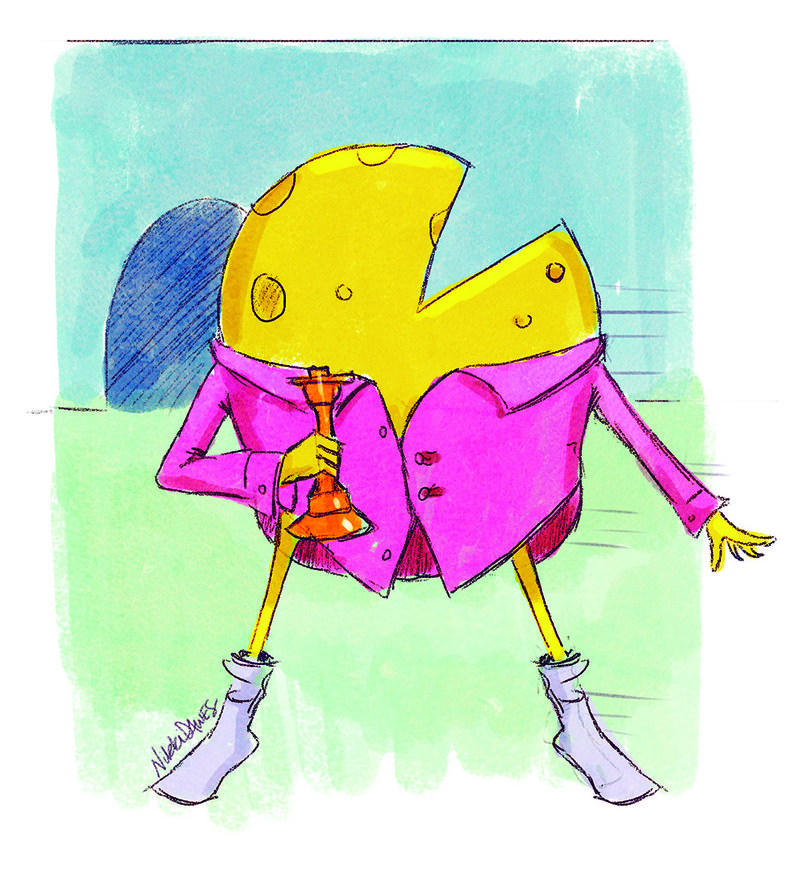"Malaphor" is not a word, but the rebel spirit is in me today, so I'm writing about it anyway.
Malaphor is an informal term for an unintentional blending of an aphorism and a malapropism.
An aphorism is a brief saying that teaches a lesson or truth or that expresses a view. A malapropism is the wrong usage of a word or phrase.
Put them together, and the results are confusing and often humorous.
Once while visiting my parents, I couldn't get my husband on the phone the first time I called. Mom said, "When the mouse is away, the cheese will play."
I believe she meant, "When the cat's away, the mice will play." But those two did have a complicated relationship.
Other malaphors:
That's water under the dam. It should be either "water under the bridge" or "water over the dam." No matter where the water goes, the past is the past.
That's no skin off my teeth. That is a combo of "no skin off my nose" and "by the skin of his teeth."
Robbing Peter to pay the Piper comes from "Robbing Peter to pay Paul" and "Pay the piper."
Out of the woods and into the fire. A combination of "not out of the woods yet" and "out of the frying pan and into the fire."
If you know me at all, you knew that Yogi Berra's name would come up soon. One of Yogi's malaphors: When you come to a fork in the road, take it.
IT'S IN THE ROOTS
On good days, I learn some interesting origins of words.
Coward. Someone who isn't brave or is timid. An often-used phrase for a coward is one who "walks away with his tail between his legs."
As it turns out, "coward" comes from the Latin word "cauda," which means "tail."
A coward may cower, but that word doesn't have the same roots.
Pavilion is misspelled with an extra "l" more times than you can imagine. It's one of those tentlike performance venues such as History Pavilion in Little Rock's Riverfront Park.
The word comes from the Latin "papilion," meaning butterfly.
ADD-ONS
This week's run-to-the-dictionary word is "epenthesis," pronounced "uh-pen-thuh-sis," with the accent on the second syllable. This is the practice of adding an extra sound or syllable to a word.
Here are some examples:
When "athlete" is pronounced "ath-a-lete."
When "sherbet" is pronounced "sherbert."
When "hamster" is pronounced "hampster."
When "drawing" is pronounced "drawring."
Sources: About.com, Words on Words by John B. Bremner, Brigham Young University, malaphors.com, conflations.com, dictionary.com
Reach Bernadette at
bkwordmonger@gmail.com
ActiveStyle on 07/31/2017
